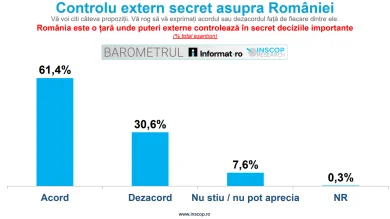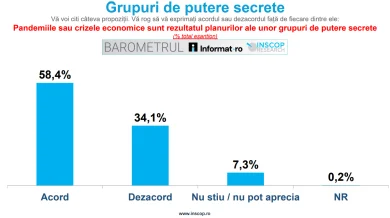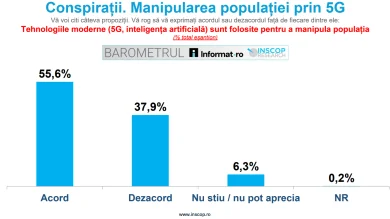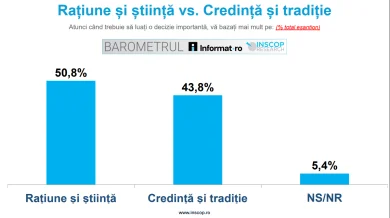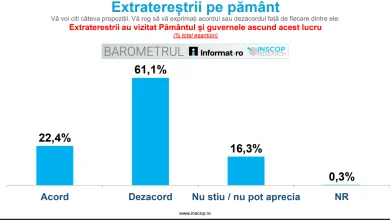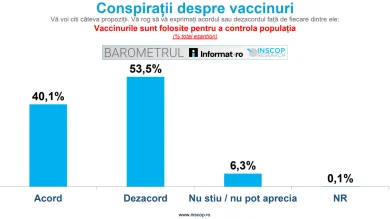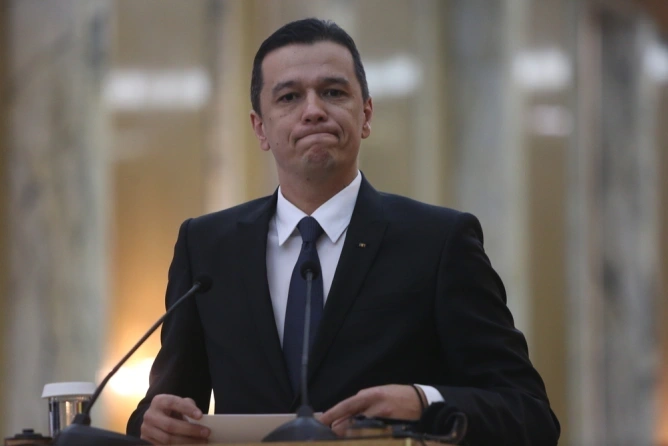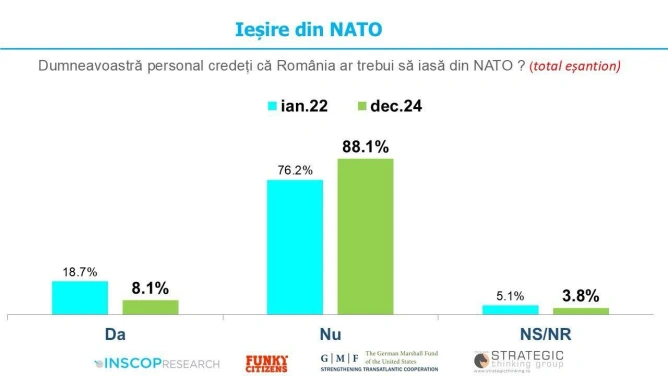
As a continuation of yesterday's comment, we are talking in the same terms not only about Romanians' opinion on membership of the European Union, but also about their opinion on NATO. The EU and NATO are perceived somehow together by Romanians, as they were in fact seen here even before our admission as a country to both international structures.
In fact, the emergence and then the prolongation of the war in Ukraine did not create the impression among Romanians that our membership in NATO would be a source of risk, but on the contrary. NATO membership is widely perceived as a guarantee of security. This perspective has become stronger over time, with 88.1% of Romanians saying in December 2024 that Romania should not leave NATO (76.2% said the same in January 2022, just before the Russian invasion of Ukraine). The figures are so high as to leave no room for interpretation. And they are obviously comparable with the ones I wrote about yesterday, concerning the European Union.
If we look at the socio-demographic profile of the respondents, and recalling that the average agreement with NATO membership is extremely high anyway, it should be noted that the segments most attached to NATO are: the very young (18-24 years old), the elderly (60 plus) and those with a very high level of schooling. Things are somewhat similar to the appreciation of the European Union, the only difference being the popularity of NATO among the very young. Apparently, they are more skeptical of the EU than of NATO. The most likely explanation for this is that the current institutional arrangement with NATO, which goes along the paradigm of a professional army with suspended compulsory military service, suits this age group, the target group for possible compulsory military service.
Complementarily, although less than 10% of Romanians believe that we should leave NATO, the socio-demographic segment that is most favored by the idea of leaving NATO is the 30-44 age group (those who are still young but who have escaped the prospect of joining NATO, to make a joke), and there are no such large deviations from the average for other socio-demographic characteristics.
Methodology: the survey conducted by INSCOP Reasearch commissioned by Funky Citizens was collected between 16 and 23 December 2024 using the CATI method (telephone interviews), the stratified multistage sample size being 1000 persons, representative by significant socio-demographic categories (gender, age, occupation) for the non-institutionalized population of Romania, aged 18 years and over. The maximum permissible error of the data is ± 3.1%, at a 95% confidence level. Comparative data for June, September 2021 and January 2022 respectively were extracted from the study "Public distrust: West vs. East, the rise of the nationalist current in the era of misinformation and fake news phenomenon" conducted by INSCOP Research commissioned by the think-tank STRATEGIC Thinking Group in the framework of a research project supported by The German Marshal Fund of the United States - and funded by the Black Sea Trust for Regional Cooperation through the True Story Project.
Darie Cristea is a Vice-Dean of the Faculty of Sociology and Social Work at the University of Bucharest and Research Director of INSCOP Research.
